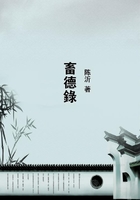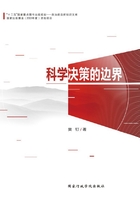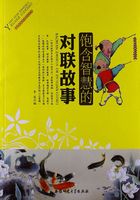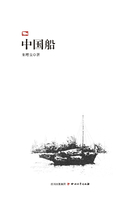There is another matter which I think Mr Harris should ponder. He says that Shakespear was but "little esteemed by his own generation." He even describes Jonson's deion of his "little Latin and less Greek" as a sneer, whereas it occurs in an unmistakably sincere eulogy of Shakespear, written after his death, and is clearly meant to heighten the impression of Shakespear's prodigious natural endowments by pointing out that they were not due to scholastic acquirements. Now there is a sense in which it is true enough that Shakespear was too little esteemed by his own generation, or, for the matter of that, by any subsequent generation.Thebargees on the Regent's Canal do not chant Shakespear's verses as the gondoliers in Venice are said to chant the verses of Tasso (a practice which was suspended for some reason during my stay in Venice: at least no gondolier ever did it in my hearing). Shakespear is no more a popular author than Rodin is a popular sculptor or Richard Strauss a popular composer. But Shakespear was certainly not such a fool as to expect the Toms, Dicks, and Harrys of his time to be any more interested in dramatic poetry than Newton, later on, expected them to be interested in fluxions. And when we come to the question whether Shakespear missed that assurance which all great men have had from the more capable and susceptible members of their generation that they were great men, Ben Jonson's evidence disposes of so improbable a notion at once and for ever. "I loved the man," says Ben, "this side idolatry, as well as any." Now why in the name of common sense should he have made that qualification unless there had been, not only idolatry, but idolatry fulsome enough to irritate Jonson into an express disavowal of it? Jonson, the bricklayer, must have felt sore sometimes when Shakespear spoke and wrote of bricklayers as his inferiors. He must have felt it a little hard that being a better scholar, and perhaps a braver and tougher man physically than Shakespear, he was not so successful or so well liked. But in spite of this he praised Shakespear to the utmost stretch of his powers of eulogy: in fact, notwithstanding his disclaimer, he did not stop "this side idolatry." If, therefore, even Jonson felt himself forced to clear himself of extravagance and absurdity in his appreciation of Shakespear, there must have been many people about who idolized Shakespear as American ladies idolize Paderewski, and who carried Bardolatry, even in the Bard's own time, to an extent that threatened to make his reasonable admirers ridiculous.
同类推荐
热门推荐
饱含智慧的对联故事(阅读故事享受快乐丛书)
《阅读故事享受快乐丛书:饱含智慧的对联故事》精选了中国民间的两百余个对联故事。这些故事,有的展现了智者的高尚情怀和名人、雅士的精神世界,有的歌颂了劳动人民的聪明才智、纯朴感情和创新精神,有的描写了士大夫的闲情逸致,有的抨击了恶人的丑恶言行,有的蕴涵着不同地域的风土人情,读者可以从中领略到中华语言神奇的魅力,受到启迪。天使之耳:交通警察之夜
《天使之耳》是东野圭吾少见有以交通事故为主题的推理故事集。6个故事都与交通事故有关,但每个看似简单的事故背后都暗藏玄机。《天使之耳》讲述车祸中坐在后座的妹妹用超常听力试图证明哥哥的无辜,《隔离带》讲述交通事故中失去司机的遗孀因为去捡高跟鞋而导致事故,《危险的新手》讲述新手女司机为了报复而令逃逸司机陷入重重麻烦,《过去吧》讲述凶手因为之前的犯错而被绳之于法,《镜中》讲述教练和警察为了集体荣誉,彼此心照不宣,将错就错地处置了交通事故……6个故事虽然都是以交通事故为题,读起来却各自独辟蹊径,精彩好读,整本书既保留了东野圭吾擅长的故事性和人性发掘,又对当下的日本社会生活进行了颇具审读的剖析与解读。做个有出息的女孩大全集
有人说,女儿是上天恩赐给父母最好的礼物,几乎所有的父母都希望自己的女儿是优雅幸福的公主,是端庄和美丽的女神。然而,并不是所有的期望都能成为现实,并不是每个女孩都拥有美丽的花环、漂亮的水晶鞋和幸福美好的明天,很好与完美,同样需要女孩自己去创造。追妻无门:女boss不好惹
青涩蜕变,如今她是能独当一面的女boss,爱了冷泽聿七年,也同样花了七年时间去忘记他。以为是陌路,他突然向他表白,扬言要娶她,她只当他是脑子抽风,他的殷勤她也全都无视。他帮她查她父母的死因,赶走身边情敌,解释当初拒绝她的告别,和故意对她冷漠都是无奈之举。突然爆出她父母的死居然和冷家有丝毫联系,还莫名跳出个公爵未婚夫,扬言要与她履行婚约。峰回路转,破镜还能重圆吗? PS:我又开新文了,每逢假期必书荒,新文《有你的世界遇到爱》,喜欢我的文的朋友可以来看看,这是重生类现言,对这个题材感兴趣的一定要收藏起来。


